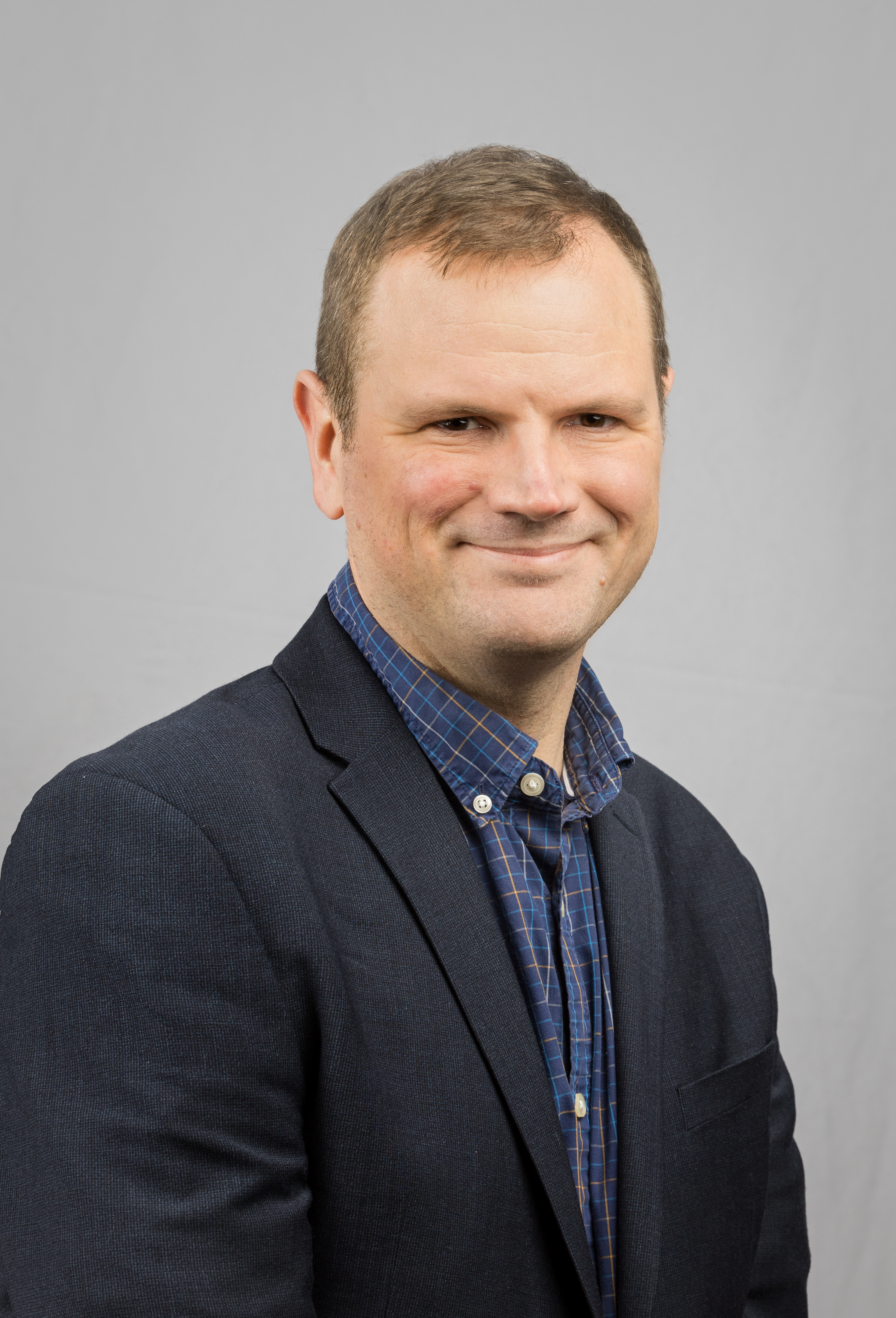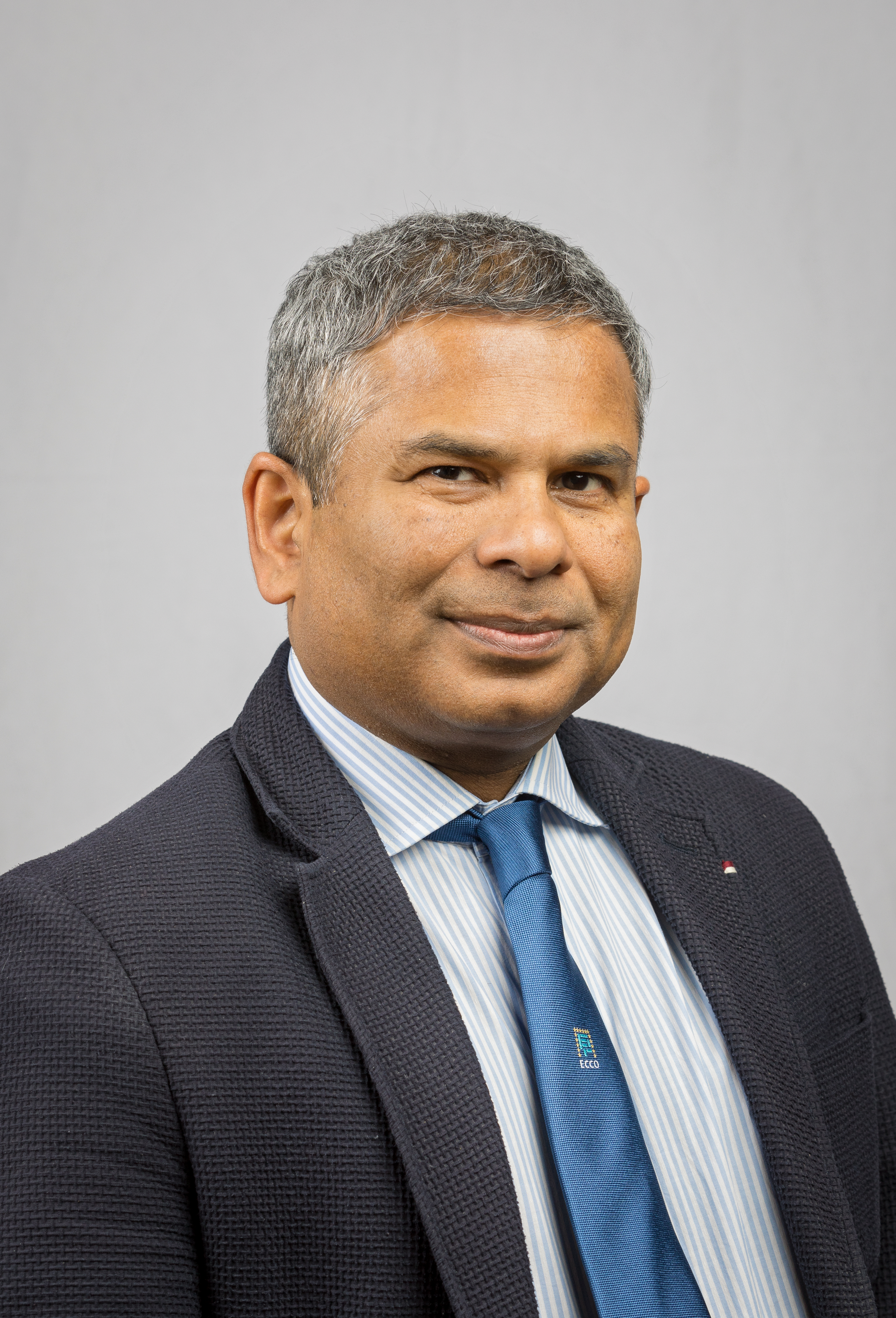Y-ECCO Interview Corner: Shaji Sebastian
Robin Dart, Y-ECCO Committee Member
 Robin Dart Robin Dart© ECCO |
For this Y-ECCO Interview Corner we met with Shaji Sebastian, who is known to everyone as Seb, on the Friday of the ECCO Congress. Seb has had a long association with ECCO. He is the outgoing Chair of ClinCom and was elected as Treasurer of ECCO at this year’s General Assembly. He is a consultant in Hull in the North of England, having got there through a somewhat circuitous route, as we will hear...
So to start off with, Why did you do medicine and how did you end up in Inflammatory Bowel Disease?
So that's really a quite personal story. I was born in “God's own Country”, which is Kerala in southern India. Our neighbours, who were from the UK and owned a tea plantation, had a son who was my childhood friend. This boy had Crohn's Disease. At that time there was not much available there, treatment wise, so he used to come to London for his diagnosis and treatment. He was my best mate, and we always talked about his issues etc. So right up front, I wanted to do gastroenterology, and I actually wanted to do paediatric gastroenterology rather than adult gastroenterology.
|
|
Then I was always interested in the history of science and was fascinated by how new diseases emerge, and the things that we didn't know much about. So I thought, yes, OK, maybe I would like to do a little bit of immunology or something of that nature and that's how I kind of got attracted to IBD.
Subsequently my mentor was Professor Colm O'Morain in Dublin, and although at that time he was mainly interested in Helicobacter pylori, he had done the early trials on enteral nutrition in Crohn's Disease in the 1980s. He said, “Seb, what you are telling me about your interest in GI disease evolution and the science of it is ideally suited to IBD.”
So that's how I got into IBD and I've not done anything else since!
Tell us about your training. Where did you do it, and what was it like treating IBD there?
I did undergraduate medicine at St. John's Medical College in Bangalore. At that time we saw very little IBD in India. In fact, we always thought of it as one of a long list of differential diagnoses rather than as the primary diagnosis. So when we went through exams, as you may imagine, we had to present cases as short cases and long cases, and it was never IBD as the first diagnosis.
Subsequently I went to the Postgraduate Institute in Chandigarh, which is an academic institute, and there we did have some IBD. Again, you never gave that as the first diagnosis. It was always the differential, but even at that time a lot of IBD may have been thought of as TB. That has now changed with the people that we know and collaborate with, as India is in the accelerating phase of IBD evolution, which I am fascinated about.
IBD incidence in India is rapidly increasing and there are some vital clues which you may get if you work with these consortia that we are developing. We have got a narrow window of opportunity in the next 10–15 years to really understand the development of IBD by deep diving into studying these populations.
Kerala, where I am from, is at the southern tip of India. I did postgraduate training in the North and there's a difference in IBD between these two regions. In Kerala there is lots of fistulising disease, and lots, lots of Crohn's Disease now. In the North there is lots of Ulcerative Colitis and only small numbers of fistulising disease. So even within the country, and yes, it's a big country, there are things happening. Kerala is essentially Syrian Catholicism: as the legend goes, a disciple of Christ came and converted us in the 1st century, so that's a different gene pool from the gene pool in the North. And this is probably reflected in other parts of the world as well. I think it will be really interesting to see what's happening on the two sides of the Andes in South America, in Chile as opposed to Argentina and Brazil, for example.
When did you decide that research was for you?
Patrick Kamath, who is now at the Mayo Clinic, was one of my tutors at the medical school. He's a hepatologist, by the way. IBD was not his thing. But he was an inspiration. He told me that you cannot be a good clinician without being involved in research, and first and foremost, I wanted to be a good clinician. So at the start that was the motivation, to be a good clinician.
So to me research was part of the everyday job and this belief has stayed with me and that's what I instill in our team as well. Everybody in the team does research. There's no choice in this! I would say research keeps me motivated because we keep asking questions and, more importantly, learning every day.
You mention Hull, where you have created a specialist IBD service where there was not one before. How did you create a research environment there?
So sometimes fortune and destiny are behind some of these things. I was appointed as a consultant in Trinity in Dublin first but then I came to the UK for family reasons, otherwise I might have stayed in Dublin. And when I was looking around, I wanted a project which I could draw on a blank canvas and that was something which could have been difficult in an established academic centre, and in fact there weren’t many dedicated IBD centres even in the UK at that time.
I came to Hull and it was a chief operating officer who put a sheet of paper in front of me which had a building plan and said, “This is going to be your new digestive diseases unit. It's not built, but this is the plan for it and I will put another sheet of paper next to it and it’s blank and I want you to draw on it, not a building, but what you're going to do.” And he told me that I would have full support from him. So right from the start I wanted to and could integrate clinical care and research. We developed strategies to ensure that research is part of the core business of the unit and research culture is embedded in the unit and its staff. Our patients are very supportive of research and now pretty much every patient is on some study or other. It is gratifying to see the outputs from this in relation to measurable outcomes.
So you have a busy unit and anyone at ECCO will see that you are busy here. How do you fit that in with your home life?
Some of the choices I made, for example not going to work in London, were primarily because of family and quality of life. I'm very fortunate to live and work where I do. So where I work there is one of the longest suspension bridges in the UK across the Humber estuary; the hospital is on one side and I live on the other side. So when I cross that bridge after work I switch off from what is happening behind me and spend time for myself and my family.
But I have to say that the support from the team is also crucial. All the members of my team, the people who are around me, are absolutely brilliant. And without them, there’s no chance I could do what I do.
Finally, you are now Treasurer of ECCO. What does ECCO mean for you?
Friendship – no other word for it. As you know, I've been in leadership positions in organisations in the UK and globally but ECCO has got something special, and that's friendship.
Thank you Seb for your time and for giving us an insight into what brought you to be a part of ECCO.



 Shaji Sebastian
Shaji Sebastian